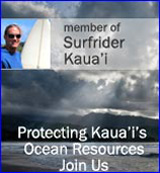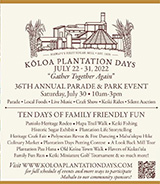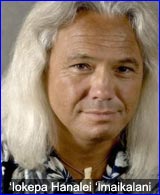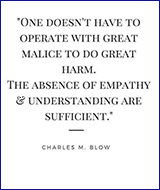Wyndham Worldwide Deception
STORY SECTIONS
Not a Job; This is a Joke!
My Termination Details
A Negative and Punishing Culture
Mike Rackley: Wyndham Equal to Apple
Terry NeSmith: I Will Not Interview Scott
Hey Terry! This Is Why You Should Interview Me $$$$
Give Customers $100; Agents Don't Get Dinner Tonight
Be Tenacious; Think Outside the Box; Make It Happen ... No Don't!
OMG!!! Wyndham (Princeville, Hawai'i) is hiring AGAIN ... Don't Be Fooled!!!
Wyndham Kicks Homeless Family Out in Freezing Temperatures
GIVE CUSTOMERS $100; AGENTS DON'T EAT TONIGHT
Wyndham Worldwide & Wyndham Vacation Ownership have a stated mission of treating potential owners excellently and ensuring a fantastic experience when they tour. This is expressed in the Count On Me campaign or the promise Specialist Presenters make to touring guests that they will not be pressured to buy because, "Wyndham is known for their warm, gracious hospitality." VP Terry NeSmith also required agents and staff to wear a blue Ask Me #10 button on our sleeves or shirt. This reminds agents Wyndham wants only #10 scores on the one to ten customer surveys. Most agents and staff eagerly supported the mission. This is a "people-friendly" culture. It's fun and rewarding to help others make positive, loving memories. And, most colleagues I met on the sales team were committed to ensuring guests, visitors and potential owners had a positive experience.
In mid-November, I had two tours over a couple days where marketing reps made false promises to guests. I reported the confusion after the first tour but my concerns went unaddressed. Following up after the second tour led to the confusion being corrected. Such instances of misinforming tour participants weren't uncommon but these distortions were particularly malicious. As I noted previously, marketing and sales rely on different strategies. Marketing uses many "baby-negatives" to convince arriving visitors to attend a sales presentation. They have a stressful job, as they also are commission-based. Their sole task is to get a warm body or two (or three, four or five) in front of a sales rep. The flaw in the Wyndham model is the failure to reward the marketing rep if the tour purchases. There is therefore no incentive for the marketing rep to paint a positive picture about the sales process. And, in fact, the opposite occurs.
The marketing rep uses a "baby-negative" strategy. To an arriving couple, a rep might say, "Aloha. How was your flight? Let me assist you with your check-in. Have any activities scheduled? How would you like a discount on a luau, helicopter flight or Na Pali boat tour? If you attend a presentation by our timeshare sales team, you will receive a $100 gift card." There's the hook: the gift card. The rep now wants to minimize the burden of earning the gift.
And, here's where the baby-negative strategy begins ... "the presentation is short." FALSE! It's a minimum of ninety minutes, but there is travel time, check-in time, and sales agents must extend the duration of the presentation if they are to be successful. Wyndham also doesn't disclose to potential clients there is more than the sales presentation. Once the tour participants convince the sales agent they are not going to buy, and NeSmith, DoS Mike Rackley and other trainers repeatedly reinforce in new sales agents they must get 4-5 "NOs" before concluding the couple on tour meant "NO," there is a deceptive sales step. Wyndham refers to this as Discovery.
The Deception of Disovery
Discovery, called disco internally, is a sales intervention disguised as a survey. Walk around the property, and cleaning staff, grounds keepers, administrators, as well as sales agents would openly smile, greet, welcome and assist cheerfully in any possible way. Disco reps commonly, and often loudly, would refer to people on tour as "maggots," "free-loaders," "moochers," or worse in profanity-laced disparagement. There is no room for childish negativity in service industry. While individuals are at fault, the failure occurs due to a flawed incentive structure.
After convincing the sales agent of their definite, final, last, ultimate "NO," Wyndham passes the tour to one disco rep. She takes over, asks how the presentation went, whether the agent did a good job, what they liked and did not like about the product, and inquires why they did not purchase today. This is "discovery." This interview masks the intention of uncovering something the agent missed and hopes to open the door allowing the disco rep to sell the tour a trial package. The tour is unaware they are being further solicited. Wyndham instructs sales agents to tell the tour participants this is the "checkout process" to receive their gift. It's simply a deception!
Thus, presentations are not short. Once a tour walks through the door, Wyndham designs the process to keep the tour from getting out the building without becoming owners. If clients wish to purchase, it is generally a four-hour commitment or much, much longer. Second, prospective tours are told there will be no pressure. HaHa! Of course there will be pressure. Wyndham's goal is to get the tour to purchase. The corporation and personnel survive financially only because people purchase. The entire system demands that the tour purchase today.
Many people have heard negative stigma about timeshare. This is why Wyndham Worldwide refers to their product as, "Vacation Ownership." The company hopes to escape the perjorative moniker. Not much has changed unfortunately. And, marketing reps do their best to downplay the rigors of the sales presentation. "It will be short." No, it won't. "There won't be any pressure to buy." Laughable. There will. It's a sales presentation. "You don't have to pay attention." Actually, you do. And, relative to this story, the marketing rep apparently told the two couples they could attend the presentation as a single group, although each couple would receive $100 gift cards. This isn't permitted. Likely, this was the only way the marketing rep could convince the couples to participate.
On this quiet November morning, my manager handed me a tour profile folder and warned, "You and Sweet D have challening tours. They're young: a Just Married couple on honeymoon with their best man and bride's maid. They don't own anything and are guests of family. (To disco reps, this is an example of 'moochers.') The four claim marketing told them they could tour together. You can't allow this. People don't buy when they're surrounded by friends, as you know. Make it clear to them Wyndham doesn't permit this to protect the sensitive and personal financial information of the couples."
This is a common, and costly, example how Wyndham fails to assign accountability properly. Marketing created the confusion by poorly instructing the couples. Yet marketing refused to intervene and clarify the policy prior to the tour, as the two couples might walk away. If so, marketing would lose credit for producing the warm bodies ... thus, lose their commission. Management could have clarified the policy for the participants. This shields sales agents from negative repercussions and leaves them with the greatest opportunity to make a sale, which is the ultimate goal. By refusing to deal with the matter, management simply passed responsibility down the chain. Wyndham saddled the people in the corporate hierarchy least trained for such issues with the burden. Suckers!
Sweet D and I informed the couples. They were openly angry. They believed they had been misled - and, this destroyed any credibilty we might have had. Not much chance of recovering this lost trust, but we did the best we could to build new relations. Each of us talked separately with our couple for 3-5 minutes and then escorted them into podium. Once the couples reunited, they chatted privately and told us they were not concerned about "sensitive, personal financial information." They didn't come to buy anything anyway. They insisted on touring together.
I slipped out of podium to inform my manager. We considered options and prepared a strategy. Yet once podium ended and I met my tour, the new bride informed me she was nauseated and feeling ill. She did look green and appeared ready to throw up. I politely suggested some fresh air might be good ... and I didn't want her to throw up in the crowded Preview Center. Outside she went. Her husband remained with me, as we discussed the situation. He apologized and told me they arrived only yesterday, late, and spent the night drinking heavily. They had rolled out of bed, no breakfast, and drove 30 minutes from Kaua'i Beach Resort to the Bali Hai facility.
At this point, he confided they had no money or intention of puchasing timeshare, as they had just put a costly wedding on their credit cards. He added it was a mistake to come in this condition. I excused myself to confir with my manager. As he was busy, I spoke with the Specialist Presenter. He instructed me to reschedule the tour. My manager joined us; agreed; directed me to reschedule the tour. "Do not let them continue today! They are in no condition to tour." The two served as managers but delegated action and responsibility to agents. This is not support.
This took about fifteen minutes and the green woman returned. I walked over to the four. They were concerned about the bride. She said she felt better but was not well. It was agreed it would be best to reschedule. As this was a large party and the talk about getting sick was disruptive, I asked them to walk outside to discuss. We considered options to reschedule. Wyndham would not require another podium, just meet with the sales agents for about 45 minutes. "Fine," they said. "Tomorrow morning?" I asked. This was not good. They had a planned activity. The more we talked, the more they realized they were booked and didn't want to commit. This is why they originally selected this day. It was the only time they had available. Now, they didn't want to reschedule.
The strategy of the four changed at this point. They asked, "Don't we need to be here for only 90 minutes? And, haven't we been here that long?" "Yes, almost," I responded, "but that is 90 minutes of sales presentation and we haven't had any time to talk about our program or your specific interests."
"We learned enough in the group presentation. We don't want to buy anything at this point," the groom told me for the group. "I understand, but you have to complete the sales tour to be fair to us," I responded. "Your wife clearly isn't feeling well. This isn't good for any of us. Let's find a good time to reconvene."
"We don't want to return. Let's just forget it," the groom gruffly concluded. I told them I understood, thanked them, and let them know we would welcome the opportunity to complete the presentation. "You have our number on your tour instruction sheet. Think about it and give us a call. You only need to complete the second half of the tour. Stop by next time you come up north."
The two couples departed. I returned inside and briefed my manager and the Specialist Presenter. I saw the marketing manager run upstairs. This is where Terry NeSmith has an office. I assumed she was reporting the incident to him. A couple minutes passed, Terry came downstairs in a rush. He met with the admin team and grabbed a handful of gift cards. Outside he went.
On his return, he signaled me to follow him to his office. He asked me what happened. I told him. He then did the Wyndham Waltz, "Well, you shoulda, shoulda, shoulda ..." This example reveals the culture of negativity. The managers didn't get involved, passed the task to me, and now the VP criticizes me for doing it incorrectly. This is why I eventually applied for a manager position. Properly trained, I would welcome the opportunity to clarify confusing situations. I responded, "I did what my manager and Specialist Presenter instructed me to do. The couples didn't want to reschedule." Terry then said, "Why didn't you send them to gifting?" Surprised I said, "I've been trained not to send anyone to gifting, as you know. Once a tour is over, I'm directed to pass them to disco. Disco takes them to gifting. Since they decided not to complete the presentation, I did not pass them to disco."
Terry was pissed. "Everyone has to get a gift ... whether they complete the tour or not." I quietly answered, "That's not how I've been trained. Sorry." Terry replied, "We can't have a young bride and groom, along with their friends, talking poorly about us as they sit around the hot tub! Luckily I caught them just as they were driving away. They did not like how you treated them."
"Terry, I was polite and professional at all times. I made it clear we would love to reschedule them at a more convenient time. The woman claimed to be ill. We didn't do the presentation. They were also upset they couldn't tour together. They told [my manager] this is what marketing promised. I reported this and did as my manager and the Specialist Presenter instructed," I stated in my defense. "Are you going to charge Sweet D and me with the tour? We didn't get an opportunity to work with them," I pleaded.
Terry glared at me, "I'm really upset how you handled this. Yes, at this point I'm charging you with the tour but I'll think about it and get back to you."
Terry never got back to me. We didn't get a replacement tour and ended up with no tour for the day. Blamed! Wyndham charged Sweet D and I with the tour. Spanked! On the other hand, Terry gave each couple a gift card, although they came to the presentation in poor condition and a member became ill. Sales agents, the people Wyndham claim are critical to the success of the company, and who Wyndham claims they invest $40K - $50K to nurture, received nothing. Sweet D and I didn't get an opportunity to make a sale that day. Wyndham takes care of potential owners to "keep them quiet around the hot tub." Yet the people who work hard for Wyndham were blamed and punished. Sweet D and I went to bed that night without eating dinner.
Do you want to work for or buy from a corporation that treats staff in this manner? Wyndham claims they care about us ... to Sweet D, me, and countless others, we know from experience that their promises are deceptive, callous and heartless.
STORY SECTIONS
Not a Job; This is a Joke!
My Termination Details
A Negative and Punishing Culture
Mike Rackley: Wyndham Equal to Apple
Terry NeSmith: I Will Not Interview Scott
Hey Terry! This Is Why You Should Interview Me $$$$
Give Customers $100; Agents Don't Get Dinner Tonight
Think Outside the Box; Be Tenacious; Make It Happen ... No Don't!
OMG!!! Wyndham (Princeville, Hawai'i) is hiring AGAIN ... Don't Be Fooled!!!
Wyndham Kicks Homeless Family Out in Freezing Temperatures






